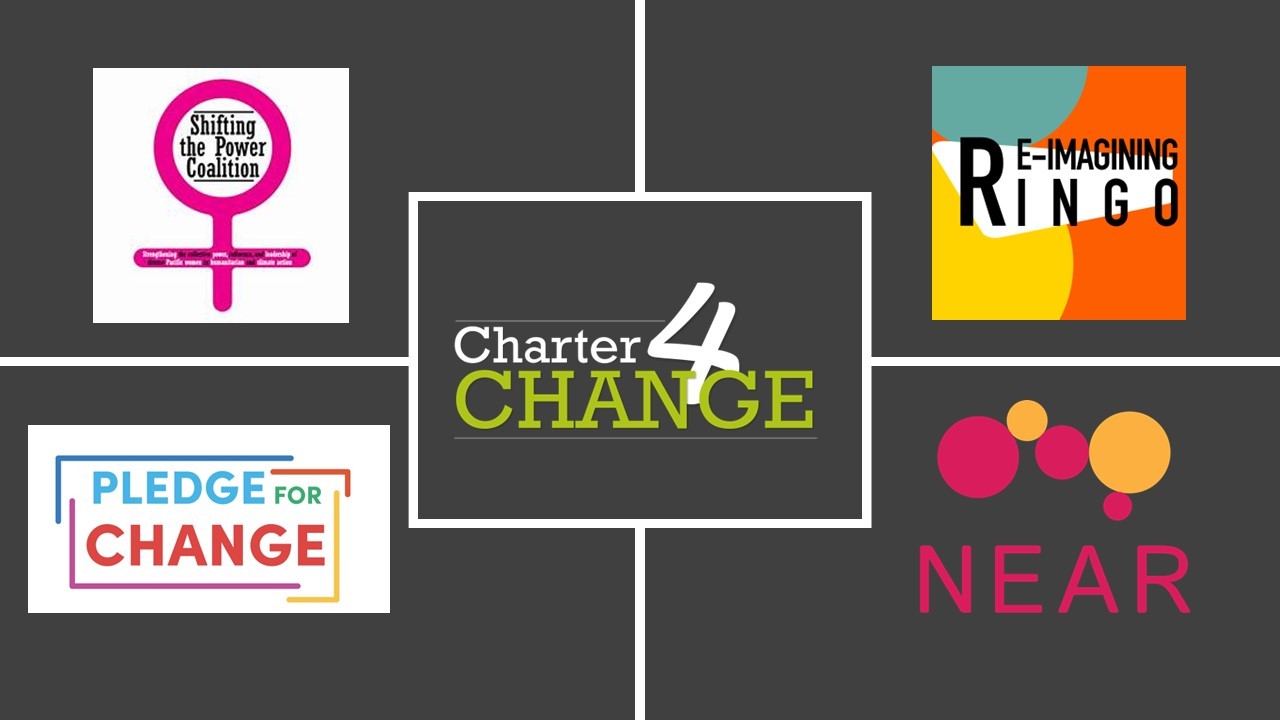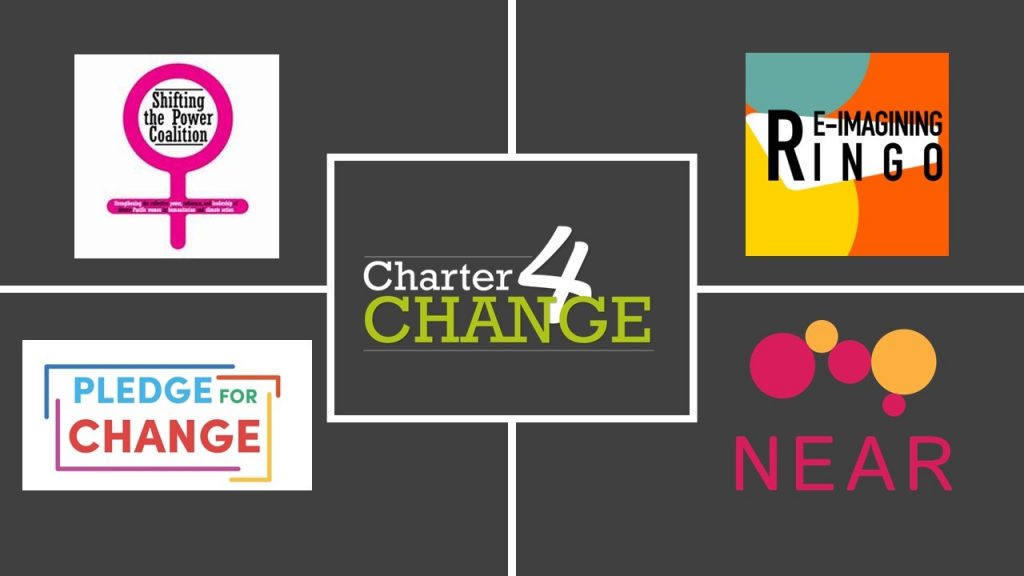
‘Dinosaurs’ must become ‘chameleons’ and ‘ostriches’ change into ‘eagles’ as international NGOs fundamentally rethink their role so they can work in true partnership with local actors, says Oxfam’s Adama Coulibaly. (Veuillez lire la version française de cet article ici.)
The impetus for decolonisation in global development is rooted in the recognition that the current system was built with a colonial mindset. This system perpetuates a power imbalance where those with resources and perceived knowledge dictate terms to those without. This long-standing imbalance has led to a disconnect between aid providers and recipients, often resulting in ineffective and culturally insensitive interventions.
Decolonisation is crucial to dismantling these outdated structures and building new, equitable partnerships. It means recognising the inherent power and agency of local communities and ensuring that their voices, rights and needs are at the heart of development efforts.

This shift involves procedural changes but also requires a fundamental change in the way power, agency and resources are distributed within the global development sector.
The what: identifying areas for change
Addressing the ‘what’ of decolonisation is a daunting challenge. It requires a comprehensive review of everything from funding models to programme implementation strategies as well as a profound shift in mindset, initiating a deep, reflective understanding of coloniality in all its forms: power, race, knowledge, gender and socio-economic relations.
Amitabh Behar, Oxfam’s interim executive director, highlights four critical dimensions that global development must address to catalyse transformative change in his Devex opinion piece, “How to get from rhetoric to reality in decolonising development”:
- Decolonising design and structures: This includes relocating headquarters to the global south and democratising governance to ensure equal representation and decision-making power for all country units.
- Decolonising money: This involves redistributing financial resources to the Global South, ensuring that most development funds are spent locally, and reducing the Northern bureaucracies that oversee these funds.
- Decolonising Knowledge and Competence: This involves valuing local knowledge and frontline skills, investing in southern scholars and think tanks, and redefining competence to include field-based experience with higher pay and recognition.
- Decolonising the theory of change: This approach advocates bottom-up design and decision-making in development interventions, ensuring that local groups have significant input and flexibility while also addressing broader issues of power distribution, resource allocation and knowledge production.
These are the pillars upon which colonial legacies are built and must be addressed to achieve true decolonisation.
The how: implementing effective strategies
Implementing decolonisation and localisation strategies requires strategic shifts within international non-governmental organisations (INGOs):
- Dinosaurs to Chameleons: Moving from rigid structures to adaptable organisations that can respond to the diverse needs of communities.
- Ostrich to Royal Eagle: Moving from risk aversion to strategic risk-taking to foster innovation and effective solutions.
- Generalist to Specialist: Focusing on core competencies to maximise impact and effectiveness.
- Cruise ship to speedboat: Transforming large, slow-moving organisations into agile entities that can adapt quickly.
- Driver’s seat to back seat: empowering local partners to take the lead while INGOs provide support and facilitation.
These strategic shifts are essential for INGOs to rethink their role and work in true partnership with local actors. You can read more about these in my article “Future of INGOs | Part 2: the era of shifting the power [from ‘Global North’ to ‘Global South’]”.
Strengthening local voices
A crucial aspect of decolonisation and localisation is amplifying the voices of local actors. According to Mohamed Ali, founder and CEO of Iftiin Foundation, a local Somali NGO, this means ensuring that local communities have the agency to design, implement and evaluate development initiatives.
It underscores the importance of community agency and the need to recognise, value and strengthen the capacity, authority, influence and knowledge of local actors to ensure that those closest to the points of impact of development interventions are at the forefront.
It also means recognising and addressing inequalities within the Global South in order to create a truly inclusive and representative development sector. Two important areas to tackle are:
- Representation and accountability: Ensuring that local actors have a seat at the decision-making table and holding donors accountable for their commitments are essential steps towards achieving true localisation. Transparency and accountability are critical to turning rhetoric into reality and making tangible progress on localisation.
- Ground-level insights: Understanding how localisation is playing out on the ground is essential to addressing gaps and challenges. Examples such as the ASAL Humanitarian Network in Kenya, where local responders lead decision-making processes, highlight the potential of localisation but also the need for continued efforts in funding and capacity building.
Daily work and concrete actions
The journey of decolonisation and localisation is a collective one, requiring commitment and action from all actors in the global development sector. As we embark on this journey, it is essential to
- Apply decolonisation principles to daily work and long-term strategies.
- Take concrete actions to shift mindsets and challenge colonial legacies.
- Foster a culture that values and integrates local voices in decision-making processes.
By addressing these areas, the sector can break down barriers and build a more equitable and just humanitarian and development landscape. Ongoing dialogue and joint efforts will shape a more inclusive future and demonstrate that global development can indeed be transformed through collective action.
Special thanks to my Oxfam colleagues Aleema Shivji, Abby Maxman, Lute Kazembe, John Kitui, Helen Stawski, Amy Croome, Marta Valdés García, Gloria Isabel García-Parra, John Samuel, Kathy Richards (she/her), Neelanjana Mukhia, Leela Ramdhani, Steve Price-Thomas, Francesc Cortada Hindersin and many more for sparking critical internal discussions on decolonisation and localisation; to our Interim CEO, Amitabh Behar, for insights on decolonising different dimensions of development; to Dr Salmah Eva-Lina Lawrence for her course on ‘Conceptualising Decolonisation for Development’; and to Mohamed Ali Diini, Founder and CEO of Iftiin Foundation, Kate Moger, Global Director of Pledge for Change, Degan Ali, Executive Director of Adeso, Rose Maruru, co-founder and CEO of EPIC-Africa and Títílọpẹ Àjàyí, research and knowledge management consultant, for their contributions to the discourse on localisation and decolonisation.
This post is adapted from a post on the author’s Positive Minds blog
On LinkedIn? Keep up with his latest posts by subscribing to the Positive Minds newsletter here
All good stuff. What I’m missing however is the element of class. Are we moving power from an elite upper middle class in the global north to a similar cohort in the global south. What can I/NGOs learn from the union movement here?.
Hi Martin,
Thanks for your insightful comment. This article is primarily concerned with the dynamics of North-South decolonisation or ‘vertical decolonisation’. However, you’re absolutely right that achieving real equity in the sector also requires addressing power imbalances within the global South.
I would call this rebalancing ‘horizontal decolonisation’. This term better captures the essence of redistributing power and resources within the Global South to ensure that local voices and leadership are empowered. This concept is consistent with the broader goals of decolonisation but focuses specifically on ensuring that we are not simply shifting power from one elite group to another, whether globally or locally.
Your suggestion to learn from the trade union movement is also valuable. Unions have long navigated the complexities of power dynamics and grassroots empowerment and offer a potential model for promoting genuine justice within their organisations.
Thank you again for your comment and for contributing to this important discussion.
A crucial element, Martin, and many governments have spotted this, quick to call out “elitist” NGOs who are distant from the genuine perspectives and agendas of the people they are supposed to be working with.
Yeah, in Mexico they call us ‘los fifis’, no? Not a good look
We also need to ensure that decoloniality is not merely a rhetorical commitment but a transformative reality by robust mechanisms for recourse and redress when commitments are not upheld. Especially because Despite the ongoing discourse around decolonisation, many institutions and individuals continue to operate predominantly under Western standards, often neglecting to engage with or implement,”non-Western “ways of working. This failure not only perpetuates colonial legacies but also stifles the diversity of thought and practice that is essential for genuine transformation.
Hi Coulibaly,
Great to read this piece from you. Its quite a journey that we are on in the sector with the concept of localization not being understood in as profound a sense as it should be. I think the decolonization lense provides a jolt that drives deeper reflection as it come with other not so positive connotations.
There are a couple of limitations I have always sensed in the localization discourse. One of them is a fixation on local NGOs as the key, and sometimes almost the only local actor we think of. We do sometimes apply the term ‘local actors’ quite narrowly. (not the case in your article). Secondly, in our emphasis on the virtues of the localization principle, we become limited in the interrogation of its challenging aspects that arise from local norms and power dynamics, where these may result in agency being in the hands of the local ‘powerful’ – and not those affected by issues at hand.
Thanks for sharing Coulibaly.
Kevin Ndemera